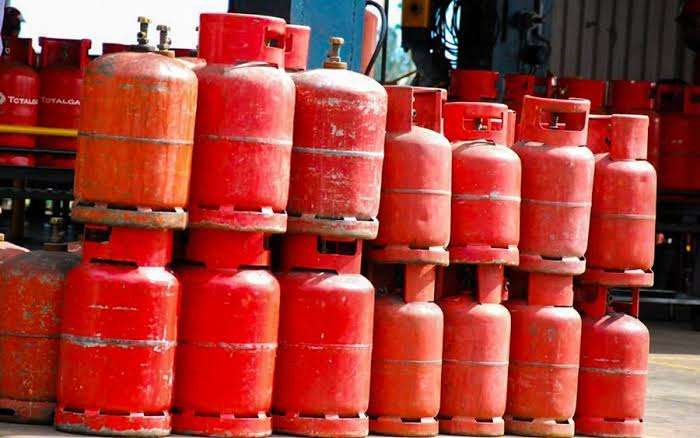Consumers of cooking gas in Nigeria have reacted positively following the rapid drop in the prices of gas across the country.
A checks being carried out during the weekend revealed that the average price of cooking gas crashed by about 90 percent in the last one week owing to several factors.
For instance, a 12kg cylinder which sold for between N9,200 and N13,100 in May, now sells from N6,350 to N6,950 within Lagos and neighbouring Ogun State.
While a 6kg measurement currently goes for N3,175 on average, a kilogram sells for N530, about N270 difference in price.
Wale Adedayo, a freelance writer, on Sunday, June 4, 2023, shared a receipt for cooking gas purchased on June 1 via his Twitter handle.
The receipt showed that 12.5 kg of cooking gas — which reportedly ranged between N9,375 and N13,000 in May — now goes for N6,950.
“12.5kg of Cooking Gas in May – N9375, 12.5Kg of Cooking Gas in June – N6950. Maybe…just maybe…we should speak out when prices go down too. This feels good,” he wrote.
Prince Ekene stated that 1kg of cooking in Onitsha, Anmbra state is now N540, he claimed to have bought it at the price on Saturday, June 3, 2023.
However, a Facebook user Christian Chiamaka Jennifer stated that the price is yet to drop in Phortharcourt, saying she bought 12kg for N10,000 on Saturday.
This was also supported by another user identifed as Iem Ber who said in her location since 2021 the price for cooking gas of 1kg remains N950.
This comes on the heels of controversies trailing President Bola Ahmed Tinubu’s announcement that “fuel subsidy is gone“.
Some users argued that the drop in the price of gas is an indication that the price of petrol will also crash with time when the subsidy is finally removed.
Others also said the government deserves to be applauded for the current price of gas.
Unlike petrol, cooking gas is not subsidised by the government. This means that the price of cooking gas is majorly determined by market forces.
Speaking on this, Leo Ukpong, a professor of Financial Economics at American University School of Business, Yola, Adamawa state, described the reported drop in price as a “supply-driven phenomenon”.
“The production of gas is very different from the refinery process of petrol. In the first place, gas was not subsidised, so it is not part of the whole subsidy issue. Petrol or PMS was subsidised but the price of cooking gas has always been determined by market forces,” he told TheCable.
“Cooking gas is basically demand and supply. The drop in price could be due to an increase in supply. If that is the case, it means the gas plants in the country are now more efficient. I think it is a supply-driven phenomenon.”











